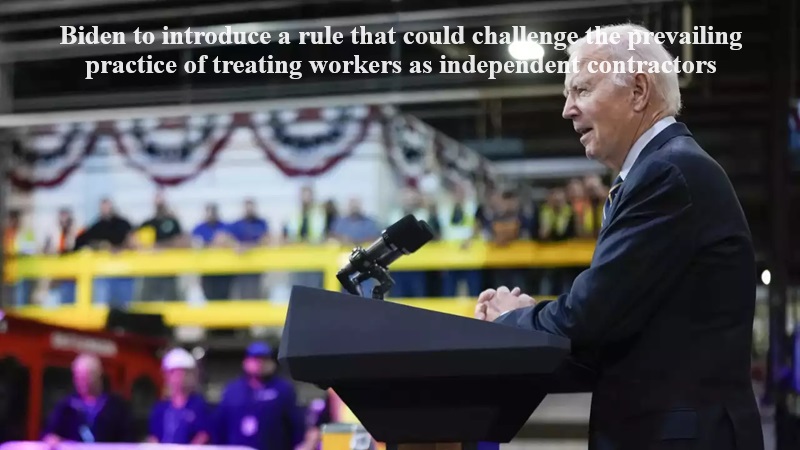
In a significant move that could reshape the gig economy, the Biden administration is gearing up to introduce a final rule challenging the prevalent practice of treating workers as independent contractors, according to a Reuters report. The upcoming US Department of Labour rule, scheduled for release this week, aims to redefine the distinction between employees and contractors, compelling companies to provide more benefits and protections to workers considered “economically dependent.”
While the rule will impact various industries, it has garnered particular attention for its potential effects on app-based services heavily reliant on contract workers, such as Uber, Lyft, and DoorDash.
The proposed rule has raised concerns about potential repercussions for workers’ flexibility and income opportunities. Marc Freedman, Vice President at the US Chamber of Commerce, expressed worries that the new rule could “threaten the flexibility of individuals to work when and how they want and could have significant negative impacts on our economy,” as cited by Reuters.
Expected to replace a Trump administration policy, the new rule is likely to face legal challenges. It will consider various factors, including a worker’s opportunity for profit or loss, investment, permanency, and the degree of control exerted by the employer.
Critics argue that the Biden administration’s departure from the Trump-era regulation will be a focal point for legal disputes, emphasizing the need for agencies to thoroughly justify the withdrawal and replacement of existing rules. The Biden administration contends that the previous rule violated wage laws and contradicted decades of federal court decisions.
Worker advocates argue that a stricter standard is necessary to address widespread worker misclassification in certain industries. The Economic Policy Institute highlights significant earnings disparities between contractor and employee roles in various sectors, supporting the need for a comprehensive review.
As the rule aims to ensure fair treatment and protection for workers, it is expected to have a profound impact on labour costs across industries, including trucking, retail, and manufacturing. Currently, most labour laws, including minimum wage and overtime pay requirements, apply only to employees. The potential to increase labour costs has drawn criticism from business groups, arguing that it could reshape the landscape for nearly 40 per cent of US workers engaged in freelance work.

Post Your Comments